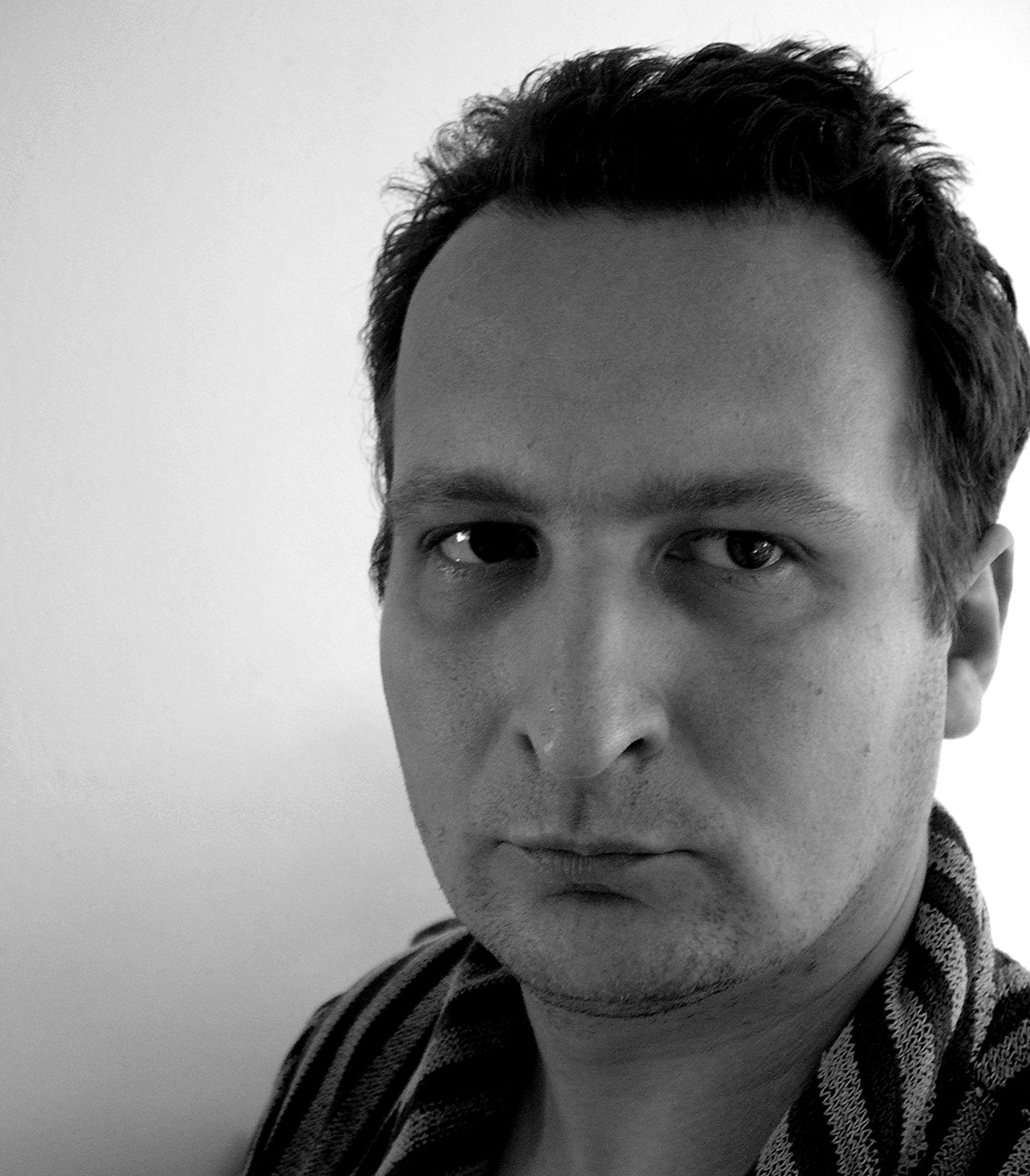about the production
“Let there be light! And there was light.” We hear Joseph Haydn’s Die Vorstellung des Chaos. Birth, creation. Then begins the reading of an ancient text – the Bible. It unfolds in front of the audience’s very eyes, in a musical‑theatrical and visual‑artistic performance.
As part of Aréna Theatre’s so‑called civic cycle, director Rastislav Ballek and dramaturge Saša Sarvašová have chosen fragments from the Old and New Testament, the narratives of the creation of the world and man, the binding of Isaac, the Exodus of Jews from Egypt, the Gospel of Christ and many others.
One of the production team’s fundamental decisions was not to stage the Bible ‘traditionally’ (and so to eliminate a potential element of preaching) but instead to read it. The act of reading the Bible as dramaturgical intention, freed of illustrating the dramatic principles behind each individual parable, offers the audience a freer space for reflection on life in accordance with the intentions of Biblical prescriptions and metaphors. A desire to read and listen to stories is somewhat of an archetypal activity for us. The Bible portrays life through moral values with which the audience can come face to face. How has the human situation changed in view f the vast technological advancements and changes in socio‑ethical systems? Where do we stand in front of the Bible today? What is the literary and symbolic form of the Bible in our temporal and spatial context? The fates of Biblical heroes used to be seen as reflections of one’s own problems, guided by the will of God. What is the present‑day individual’s Bible? What sort of stories does he seek and listen to in order to confirm his values? Is contemporary man less cruel and uncompromising in contrast to the heroes of the Old Testament?
The Slovak Chamber Orchestra, led by Edwald Danel, complement the individual meditative or emotive atmospheres, performing the music of Johann Sebastian Bach, Wolfgang Amadeus Mozart, Ivan Acher and others. Action painting divides between separate scenes.
Toned‑down emotional gestures and movement are minimalised and transferred onto canvas, where they explode. However, the live show does not aim toward visual abstraction; to the contrary, it escalates to the very concrete act of crucifying oneself/god. Colour, shadow, light as mark and symbol, blots, blurry structures, white spots compose fragile reflections on weakness and strength, the wax and wane of man in his daily struggles with god/himself. Layering paint on canvas equally directs the audience’s attention to (the) man’s irreversible actions – his deeds. The ritual act adds dynamics to the reading and, together with all the other elements on stage, results in an unusual spectatorial experience.
Juraj Kukura dressed in a white suit as the performer brings his own life experience into play as an inseparable aspect of his performative interpretation. He is above all (a) man reading the Bible. In the creator’s view, The Bible portrays “… parables of the modern individual confounded by a loss of faith, which is nowadays substituted by consumerism. The trials of the current age are no different from those of the Old Testament; betrayal and the struggle with oneself are the same as in the New.”
As director Ballek says: “I think anyone who watches it and takes the risk, because he will imagine the ‘Bible’ in theatre, before he sees the scenic reading, as something that he either has no interest in as a theatre fan or something that outrages him as a believer and regular church attendee then he will have to find his own name or the format. Though it is a reading, essentially a play in terms of stage time, we needed a dramatic arc. And Holy Scripture, the Old Testament and the New Testament, contains a dramatic arc of sorts, beginning with creation, continuing through God’s promises to his chosen people and ending, for us Christians, with the sacrifice of Jesus on the Cross and his resurrection. This was the storyline we tried to follow.”
Júlia Rázusová
creators
script and direction: Rastislav Ballek
dramaturgy: Saša Sarvašová
musical dramaturgy: Ewald Danel
music: Ivan Acher, Boaz Avni, Johann Sebastian Bach, Johann Georg Benda, Max Bruch, Joseph Haydn, Georg Friedrich Händel, Wolfgang Amadeus Mozart, Romuald Twardowski
conductor: Ewald Danel
light design: Róbert Polák
cast: Juraj Kukura
Slovak Chamber Orchestra led by Ewald Danel:
violin: Vladimír Bereník, Iveta Blažejová, Pavel Bogacz, Martina Karnoková, Michaela Karvay, Kristína Mihaliková, contrabass: Marián Bujňák, violoncello: Andrej Gál, Katarína Kozelková, viola: Juraj Madari, Martin Petrík, Peter Zwiebel
director

Rastislav Ballek (1971) studied philosophy and sociology at the Faculty of Arts of the Comenius University in Bratislava, later also graduated in theatre directing from the Academy of Performing Arts in Bratislava. He has directed at several acclaimed theatres in Slovakia and the Czech Republic. In 2003 − 2008, he was artistic director at the Žilina City Theatre. He authored the cult original production Tiso at Aréna Theatre (Divadelná Nitra 2015) and directed Kukura (Divadelná Nitra 2012), The Holocaust (Divadelná Nitra 2013) or Rosmersholm (2013). At the Opera of the Slovak National Theatre, he directed the world premiere of Martin Burlas’ chamber opera Coma (2007). Ballek’s productions and theatrical projects regularly appear at local and international theatre festivals (Plzeň Theatre, Sterijino pozorje in Novy sad, Serbia, New Drama Bratislava, Divadelná Nitra, Eurokaz Festival in Zagreb, Expo 2000 in Hannover). Ballek is twice‑nominee for Best Direction in the Dosky annual critics survey. He earned Dosky for Best Production of the Season 2004/2005 with Tiso, written for and directed at Aréna Theatre. In 2017, he received the Stano Radič Prize for Discovery of the Year at the festival Kremnické GAGY for The Economy of Good and Evil, and his production The Principles of Newspeak earned the title ‘Počin [Poučn]’ at KioSK Festival 2017 for lighting design.
Materials available
Video of the production: yes
Scripts of the production: SK, EN
If you are interested in these materials, write to archivy@nitrafest.sk
